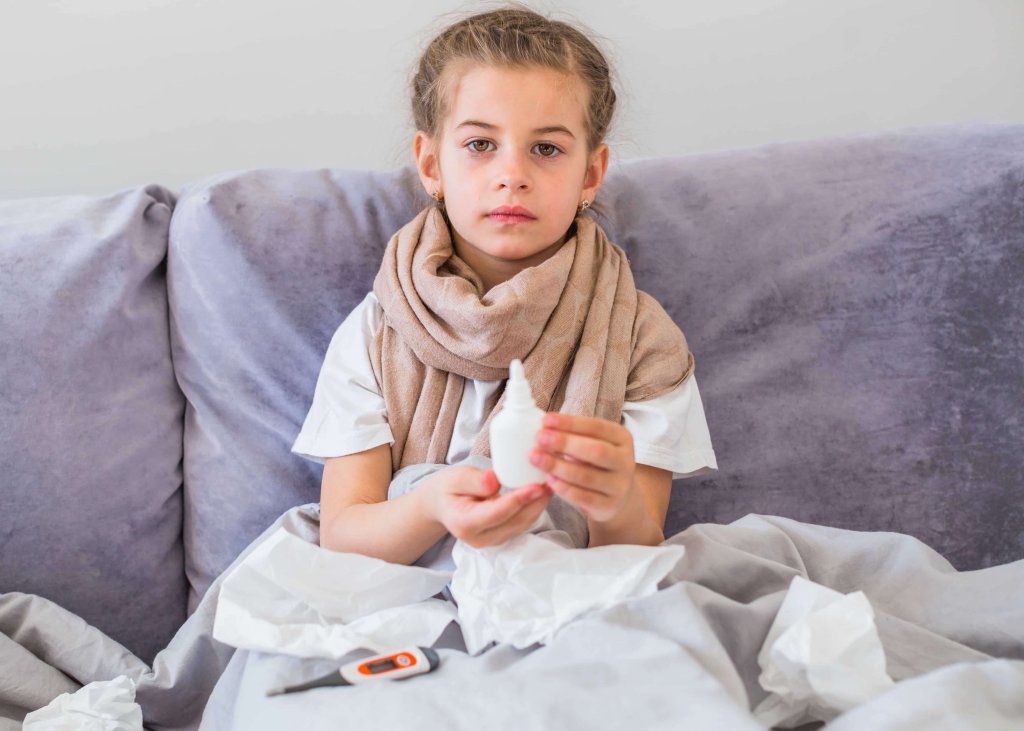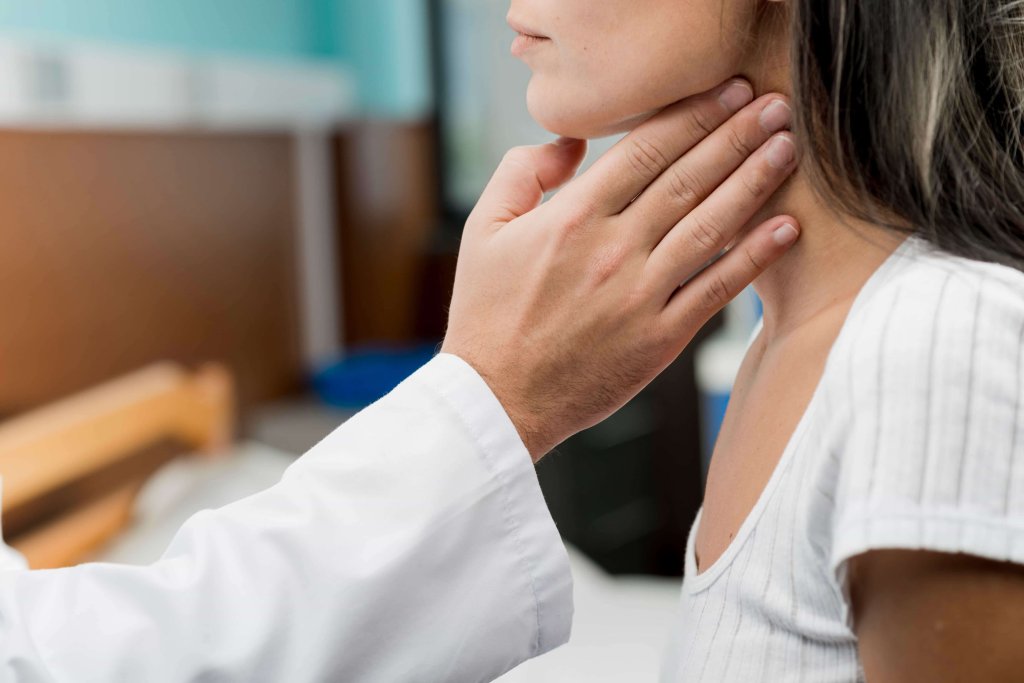Cold (Common Cold)
Cold is a common upper respiratory tract infection in children. It is usually caused by viruses and presents with symptoms such as nasal congestion, sneezing, coughing, and mild fever. Treatment for cold typically includes symptomatic relief medications, rest, plenty of fluids, and nasal sprays. Antibiotics are generally not effective as colds are mostly viral.
Otitis Media
Otitis media typically occurs due to a bacterial infection and can cause hearing loss in children. Treatment usually involves antibiotics. Pain relievers can help control pain and fever. Additionally, warm compresses may be recommended to alleviate ear pain.
Middle Ear Infection
Middle ear infection often results from fluid buildup and infection in the middle ear. Antibiotics are commonly used for treatment. Pain relievers can help reduce fever and alleviate pain. In some cases, doctors may recommend a procedure that may require puncturing the eardrum.
Sinusitis
Sinusitis is an infection or inflammation of the nose and sinus cavities. Antibiotics, nasal sprays, and decongestants are typically recommended for treatment. Pain relievers can help alleviate facial pain and headaches. Steam inhalation and increased fluid intake can also help alleviate symptoms.
Bronchitis
Bronchitis is inflammation of the bronchial tubes and can be caused by viruses or bacteria. Treatment may include rest, increased fluid intake, symptomatic relief medications, cough suppressants, and bronchodilators. Antibiotics may only be effective in bacterial bronchitis.
Nutritional Disorders
Nutritional disorders can occur when children do not receive adequate nutrition. Treatment may involve nutritional counseling, supplements, and, if necessary, psychological support. Family education and support play a significant role in the treatment process.
Diarrhea
Diarrhea often occurs due to viruses or bacteria and can lead to fluid loss. Adequate fluid intake is important in treatment. Antibiotics are effective only in bacterial diarrhea. Additionally, probiotics and electrolyte-containing beverages can help alleviate symptoms.
Poisoning
Poisoning can occur when children accidentally or intentionally ingest toxic substances. Treatment may vary depending on the type and amount of poison. Methods such as emergency room intervention, gastric lavage, activated charcoal use, and symptomatic treatment may be applied.
Stomach Flu
Stomach flu is often caused by viruses and can present with symptoms such as nausea, vomiting, abdominal pain, and diarrhea. Treatment usually involves rest, increased fluid intake, and light foods. Symptomatic relief medications may be used.
Tonsillitis
Tonsillitis is often caused by streptococcal bacteria and can present with symptoms such as throat pain, difficulty swallowing, fever, and swollen lymph nodes. Antibiotic treatment is generally recommended. Pain relievers and gargling may also help alleviate symptoms.
Hand, Foot, and Mouth Disease
Hand, foot, and mouth disease often occurs due to the Coxsackie virus and can present with symptoms such as rashes, fever, oral lesions, and pain in the hand-foot-mouth area. Treatment may include symptomatic relief medications, increased fluid intake, and oral care.
Flu (Influenza)
Flu is a respiratory tract infection caused by influenza viruses. Treatment may include rest, increased fluid intake, symptomatic relief medications, and sometimes antiviral drugs. It is important to consult a doctor if there are serious symptoms such as high fever or difficulty breathing.
Red Eye
Red eye can occur due to viral or bacterial infections and can present with symptoms such as redness, watering, itching, and sensitivity in the eye. Treatment may include eye drops, cold compresses, and symptomatic relief medications.
Chickenpox
Chickenpox is an infection caused by the varicella-zoster virus and can present with symptoms such as rashes, fever, headache, and general fatigue. Treatment usually involves symptomatic relief medications, lotions to reduce itching, and increased fluid intake. Chickenpox vaccine is also recommended as a preventive measure.
Head Lice
Head lice infestation often occurs due to parasites living on the scalp and can present with symptoms such as itching and presence of nits (eggs) on the scalp. Treatment may involve lice shampoos, combing, and home cleaning measures. Additionally, environmental measures should be taken when lice are detected.
Meningitis
Meningitis is inflammation of the brain membranes and can occur due to bacterial or viral infections. Treatment involves hospitalization, antibiotic treatment, fluid support, and management of symptoms. Early diagnosis and treatment are important as meningitis can lead to serious complications.
Mononucleosis (Kissing Disease)
Mononucleosis is an infection caused by the Epstein-Barr virus and can present with symptoms such as fever, sore throat, swelling of lymph nodes, and general fatigue. Treatment usually involves symptomatic relief medications, increased fluid intake, and rest.
Earache
Earache often occurs due to infection or ear congestion. Treatment may involve antibiotics, pain relievers, and ear drops. Warm or cold compresses can help alleviate pain.
Urinary Tract Infection
Urinary tract infection usually occurs due to bacteria in the bladder or urinary tract. Treatment may involve antibiotics, increased fluid intake, and symptomatic relief medications. Regular urine analysis and doctor visits are important for monitoring infection.
Bronchiolitis
Bronchiolitis is inflammation of the small airways often caused by respiratory viruses and is usually seen in babies. Treatment may involve symptomatic relief medications, humidifiers, and oxygen support if necessary. Antibiotics are often ineffective as bronchiolitis is usually viral.
Bacterial Sinusitis
Bacterial sinusitis is an infection of the sinus cavities caused by bacteria. Treatment usually involves antibiotics, nasal sprays, and symptomatic relief medications. Warm compresses and steam inhalation can also help manage symptoms.
Cough
Coughing can occur due to viral infections or allergic reactions. Treatment may involve symptomatic cough syrups, steam inhalation, increased fluid intake, and rest. Additionally, treating the underlying cause of the cough is important.




